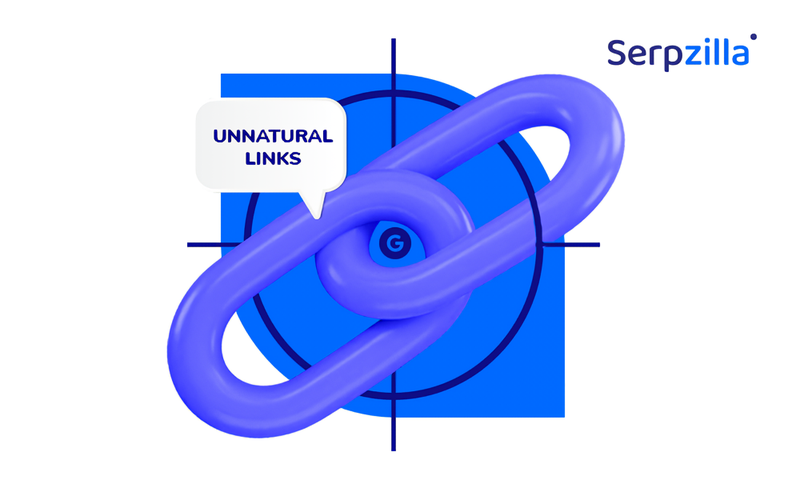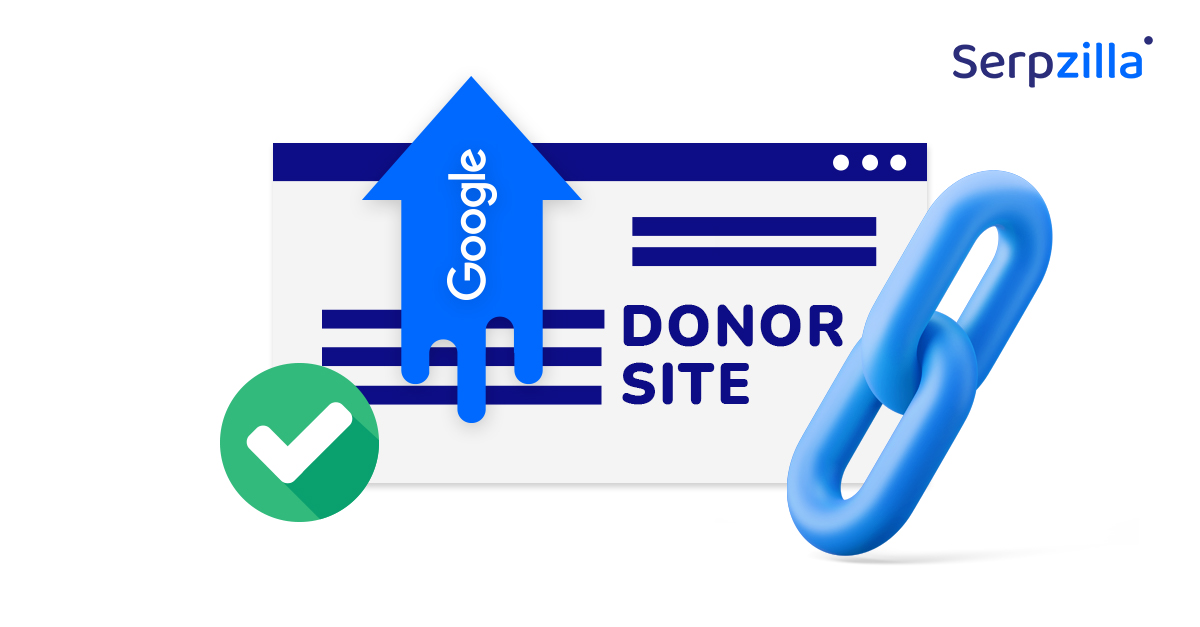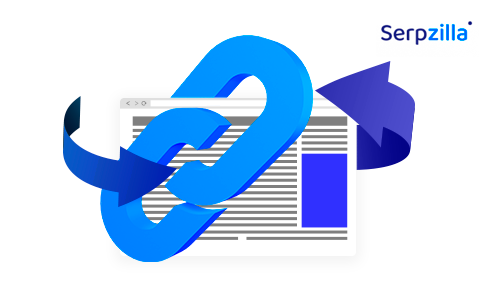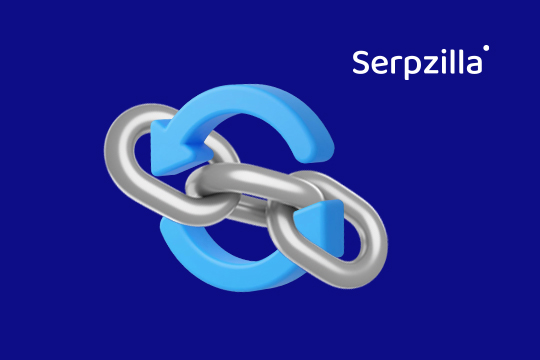Link building is vital for all crypto and blockchain projects. It builds trust and legitimacy – high-quality backlinks act like endorsements, vital in a space rife with skepticism. Second, it boosts search engine rankings, driving organic traffic and eyeballs to your project. Lastly, it fosters community and collaboration – guest posts and resource exchanges create meaningful connections within the ecosystem.
Imagine: a DeFi protocol lands a link from a respected DeFi news site, propelling them up search results and sparking valuable partnerships. Or, a blockchain educational platform secures backlinks from universities, establishing their content as authoritative and attracting students. Link building, done right, is the best way for unearthing success in the crypto and blockchain world.
Understanding Link Building in the Crypto Business
In “Understanding Link Building in the Crypto Business,” we delve into the unique aspects of link building for crypto websites and underscore the significance of high-quality, relevant backlinks to establish domain authority and trust in the cryptocurrency sector.
Differences Between Crypto Link Building and Traditional Link Building:
| Aspect | Crypto Link Building | Traditional Link Building |
| Content Focus | Emphasis on blockchain, crypto trends, and technological innovations. | Typically revolves around diverse topics relevant to specific industries. |
| Niche Relevance | Prioritizes links from crypto-related platforms to enhance niche authority. | Seeks links from industry-specific sites outside the crypto sector. |
| Community Engagement | Actively involves participation in crypto communities and forums. | Engagement with forums and communities related to specific business sectors. |
| Trust Factors | Strong emphasis on building trust through crypto community endorsements. | Trust building may rely on established industry partnerships and endorsements. |
| Dynamic Trends | Rapid adaptation to evolving crypto trends and emerging technologies. | Adapts to industry-specific trends and market dynamics. |
| Link Placement Criteria | Values contextual placement within crypto-focused content. | Focuses on relevant placement within content related to specific industries. |
| Risk Consideration | Addresses unique risks associated with crypto market volatility and regulatory changes. | Generally considers industry-specific risks without the same level of regulatory volatility. |
| Authority Sources | Collaboration with reputable crypto influencers and platforms. | Collaboration with industry influencers and established platforms. |
| SEO Algorithm Considerations | Adapts to the intricacies of crypto-related search algorithms. | Aligns with general SEO algorithms with a focus on industry-specific nuances. |
Creating High-Quality Content
Crafting high-quality content is foundational to successful link building for crypto sites. Focus on generating engaging, informative, and shareable content that resonates with your target audience. Explore trending topics in the cryptocurrency space, offer unique insights, and ensure your content provides real value. Employing a variety of media, such as articles, videos, and guides, can enhance the appeal of your content for both users and potential linking sites.
Guest Posting
Engaging in guest posting is a strategic approach to secure backlinks from relevant and authoritative sites in the crypto niche. Identify platforms that align with your content and industry focus. Develop personalized outreach strategies to establish connections with editors and site owners. Share your expertise through well-crafted guest posts, emphasizing the value your content brings to their audience.
Utilizing Social Media and Online Communities
Harness the power of social media platforms, such as Reddit and Twitter, along with crypto-specific forums. Actively participate in discussions, share your content, and build relationships with influencers in the cryptocurrency space. By fostering genuine connections, you increase the likelihood of your content being shared and linked within these influential circles.
Creating Broken Links
Identifying broken links on relevant sites presents an opportunity to replace them with your cryptocurrency content. Conduct thorough research to pinpoint broken links within your niche. Reach out to site owners with a solution—your high-quality content—as a replacement. This approach not only aids in link acquisition but also helps webmasters maintain a healthy and updated site.
Infographics
Leveraging the visual appeal and shareability of infographics can be a powerful link-building strategy. Create visually appealing infographics that effectively communicate your project’s values, operating principles, or unique features. Share these infographics across platforms and encourage others to use them, fostering organic link generation as users embed them in their content.
Unlinked Brand Mentions
The unlinked brand mentions strategy involves identifying instances where your brand is mentioned but not linked. Reach out to the content creators or website owners to kindly request the inclusion of a hyperlink. This method capitalizes on existing brand recognition and increases the likelihood of converting mentions into valuable backlinks.
Link Exchange
Explore the A-B-C exchange strategy, where Site A links to Site B, Site B links to Site C, and Site C links back to Site A. While this can be effective, it requires careful consideration of the relevancy and authority of each site involved. Examples include industry collaborations, partnerships, or thematic connections. Understand the nuances of link exchange, ensuring a balanced and mutually beneficial approach.
Crypto Affiliate Programs
Implementing cryptocurrency affiliate programs can significantly boost online visibility and brand memorability. Develop and promote affiliate programs that incentivize partners to share and link to your content. This creates a network of affiliates actively contributing to the growth of your link profile while mutually benefiting from the collaboration.
By strategically implementing these diverse link-building approaches, crypto sites can enhance their online presence, authority, and engagement within the dynamic landscape of the cryptocurrency industry.
How to Measure the Success of Link Building Efforts
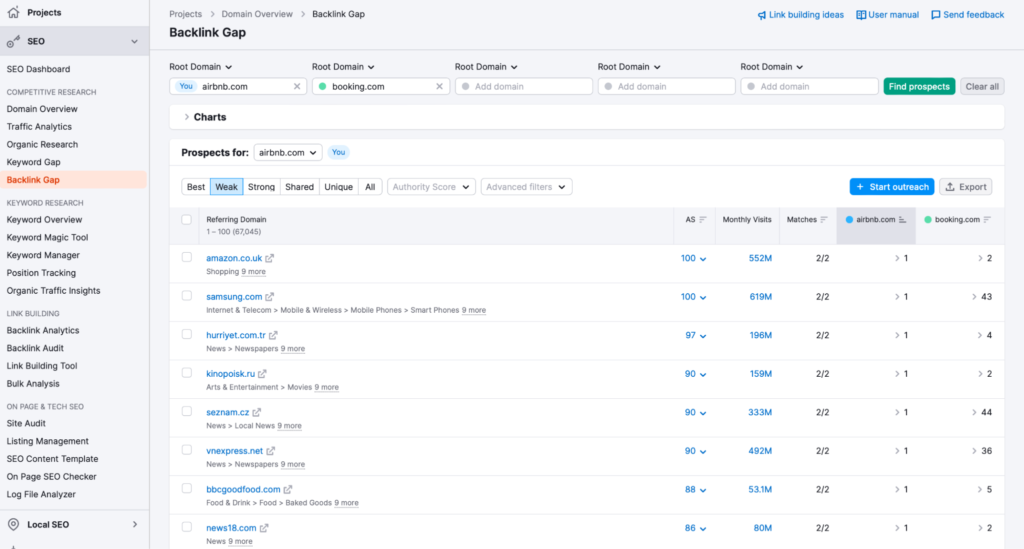
Building a strong backlink profile is crucial for any website, but it’s especially important in the competitive world of cryptocurrency and blockchain. High-quality, relevant backlinks act as digital endorsements, boosting your domain authority, search engine ranking, and ultimately, your visibility within the cryptosphere. But how do you track your progress and measure the effectiveness of your link building efforts? Here are some essential tools and metrics to consider, along with a closer look at three top contenders:
Some of the key backlink metrics include:
- Total Backlinks: The overall number of websites linking to yours. A good starting point, but quality matters more than quantity.
- Domain Authority (DA): An estimation of a website’s backlink strength and influence. Higher DA links are more valuable.
- Referring Domains: The number of unique domains linking to yours. Indicates diversity and broad reach.
- Anchor Text: The keywords used in the link text. Relevant anchor text helps with search engine optimization.
- Link Type: Follow vs. nofollow links (follow passes SEO juice, nofollow doesn’t).
- New vs. Lost Backlinks: Monitor changes over time to identify opportunities and potential issues.
Top Backlink Tracking Tools:
1. Ahrefs:
- Pros: Massive backlink database, detailed competitor analysis, advanced filtering options, user-friendly interface.
- Cons: Costly, can be overwhelming for beginners.
2. SEMrush:
- Pros: All-in-one SEO platform with backlink tracking, keyword research, and competition analysis features.Good value for money.
- Cons: Backlink database not as extensive as Ahrefs, interface can be cluttered.
3. Majestic:
- Pros: Unique “Trust Flow” and “Citation Flow” metrics for link quality assessment, historical backlink data.Affordable plans.
- Cons: Interface can be outdated, less user-friendly than Ahrefs and SEMrush.
Avoiding Black Hat Techniques
Black hat link building involves employing deceptive, manipulative, and unethical tactics to artificially boost a website’s link profile. This includes practices like buying links, link spamming, and using automated tools to generate backlinks. The primary goal is to manipulate search engine algorithms and achieve higher rankings without providing genuine value.
It is Danger for Cryptocurrency Sites: Cryptocurrency sites face unique risks with black hat link building due to the industry’s sensitive nature. Given the potential for fraud and scams in the crypto space, search engines are particularly vigilant. Engaging in black hat techniques raises red flags, jeopardizing the credibility and trustworthiness of cryptocurrency websites. This can result in severe consequences, including penalties and blacklisting.
It attracts Google Penalties: Google imposes penalties on websites that violate its Webmaster Guidelines, including those involved in black hat link building. Penalties can range from algorithmic adjustments that lower a site’s ranking to manual actions that may lead to deindexing. Google continuously refines its algorithms to detect and penalize manipulative tactics, making it crucial for websites to adhere to ethical link-building practices.
It Adversely Impacts Site Ranking: The impact of Google penalties on a site’s ranking is profound. Algorithms, such as Google’s Penguin, target sites with unnatural link profiles. Once penalized, a site may experience a significant drop in search rankings, leading to decreased visibility and traffic. Reversing these penalties often requires a comprehensive and time-consuming cleanup of the link profile, along with a reevaluation of the site’s content and overall SEO strategy.The counterpart of black hat SEO is white hat link building. Read this blog to learn more.
Measuring the Success of Your Link Building Efforts
Successfully implementing a link building strategy is not just about acquiring links but also about assessing the impact on your website’s performance and visibility. Here are key metrics to track:
Referral Traffic: One of the primary indicators of successful link building is an increase in referral traffic. Monitor the traffic coming to your site from the links you’ve built. A rise in referral traffic suggests that your links are not only present but also driving users to explore your content.
Search Engine Rankings: Keep a close eye on your search engine rankings, especially for targeted keywords. Improved rankings indicate that search engines recognize the relevance and authority of your site, often influenced by the quality and quantity of your backlinks.
Domain Authority (DA) and Page Authority (PA): Regularly check changes in your domain authority and page authority. An increase in these metrics signifies that your link building efforts are positively impacting the overall authority and credibility of your website. Tools like Moz or Ahrefs can help in tracking these scores.
Conversion Rates: Assess how well your link building efforts are translating into conversions. Whether it’s sign-ups, purchases, or other desired actions, a successful link building strategy should contribute to an improvement in conversion rates. This indicates that the traffic generated through links is not just casual but also converting into valuable engagements.
Diversity of Link Sources: Evaluate the diversity of your link sources. A healthy link profile includes links from various reputable domains rather than being concentrated in a few. Diversification reduces the risk of algorithmic penalties and indicates a well-rounded link-building strategy.
Social Signals: Monitor social media metrics such as shares, likes, and comments on the content linked to your site. Social signals contribute to your overall online visibility and can be influenced by the quality and relevance of your link building.
Bounce Rates: Analyze the bounce rates for visitors coming through your links. Low bounce rates suggest that visitors find your content engaging and relevant. High-quality content linked from authoritative sources tends to retain users, contributing to a lower bounce rate.
Brand Mentions and Citations: Keep track of brand mentions and citations across the web. Successful link building often leads to increased mentions of your brand or project name. This is a positive sign of growing brand awareness and authority in your industry.
Backlink Quality and Diversity: Regularly assess the quality and diversity of your backlinks. High-quality links from diverse sources, such as industry-specific sites, reputable blogs, and news outlets, contribute to a robust link profile. Conversely, a concentration of low-quality links may signal potential issues.
How to Сreate Links from Cryptocurrency Related Websites?
Research and Identify Target Websites: To create links from cryptocurrency-related websites, start by conducting thorough research to identify target websites within the crypto niche. Look for reputable and authoritative platforms that align with your project’s goals. Consider factors such as domain authority, relevance, and community engagement. Building links from established sites can significantly enhance your project’s credibility and visibility within the cryptocurrency community.
Research the Niche in Depth: A deep understanding of the cryptocurrency niche is essential for effective link building. Stay informed about the latest trends, news, and discussions within the crypto space. This knowledge will enable you to create content that resonates with the target audience and establishes your project as a valuable contributor to the community. Being well-versed in the niche also helps in identifying the most influential websites for link-building opportunities.
Create Content That Is Valuable and Relevant: Crafting content that provides genuine value to the cryptocurrency community is crucial. Develop informative articles, guides, or multimedia content that addresses specific issues, educates, or entertains the audience. Ensure that your content is not only relevant but also adds something new or unique to the existing conversation. Valuable content is more likely to be shared and linked to by other websites in the crypto space.
Define Your Link Strategy: Establish a clear and well-defined link-building strategy tailored to your project’s objectives. Determine whether you’ll focus on guest posting, resource link building, or collaboration with influencers. Having a strategy in place ensures a systematic approach to acquiring links and helps in measuring the effectiveness of your efforts.
Determine Your Link Budget: Allocate resources for your link-building efforts by defining a budget. This may include expenses for content creation, outreach tools, or collaborations. A well-planned budget ensures that you can execute your link-building strategy effectively and make the most of available resources.
Create an Anchor Sheet: Develop an anchor text sheet that outlines the keywords and phrases you want to use for your backlinks. This helps maintain consistency across your link profile and ensures a natural distribution of anchor text. Avoid overusing exact-match anchor text, and strive for a diverse and balanced approach to anchor text optimization.
Create a 6-12 Month Promotion Plan: Craft a comprehensive promotion plan outlining the activities and milestones for the next 6-12 months. This plan should cover content release schedules, outreach efforts, and targeted campaigns. A long-term approach allows for sustained link-building efforts and helps build enduring relationships within the cryptocurrency community.
Regularly Monitor the Backlinks You Receive: Consistently monitor the backlinks your project receives to assess their quality and relevance. Utilize tools like Google Search Console or third-party backlink analysis tools to track new links and identify any potentially harmful ones. Regular monitoring enables you to address issues promptly, ensuring a healthy and effective link profile over time.
Common Mistakes in Link Building in Crypto Projects: Ways to Solve Problems
1. Focusing Solely on Quantity Over Quality: One common mistake is prioritizing the sheer quantity of backlinks rather than their quality. To rectify this, emphasize acquiring links from reputable and relevant sources within the crypto community. Quality links from authoritative websites can contribute more significantly to your project’s credibility and search engine rankings.
2. Ignoring the Relevance of Link Sources: Choosing irrelevant link sources can harm your project’s reputation. Address this by conducting thorough research to ensure links come from sources directly related to the crypto industry. Aligning with reputable crypto websites enhances the value and relevance of your backlinks.
3. Overusing Exact-Match Anchor Text: Over-reliance on exact-match anchor text can lead to penalties from search engines. Resolve this by diversifying anchor text with variations that include brand names, generic terms, and relevant phrases. This SEO strategy maintains a natural link profile and helps avoid algorithmic penalties.
4. Neglecting the Power of Internal Linking: Neglecting internal linking hinders the distribution of link equity across your website. Correct this by strategically incorporating internal links within your content, guiding users to relevant pages. This not only strengthens your site’s architecture but also improves user experience and SEO.
5. Overlooking Broken Link Building: Overlooking broken link building as an opportunity is a mistake. Identify broken links on reputable crypto websites, and reach out to suggest your relevant content as a replacement. This proactive approach can lead to valuable link acquisitions.
6. Not Diversifying Link Building Strategies: Relying on a single link building strategy exposes your project to risks. Diversify your approach by combining methods such as guest posting, influencer collaborations, and social media promotion. This safeguards your link profile and ensures resilience against changes in search algorithms.
7. Failing to Monitor and Remove Toxic Links: Failure to monitor and remove toxic links can harm your project’s credibility. Regularly audit your backlink profile using tools like Google Search Console and disavow toxic links. This proactive stance helps maintain a healthy link portfolio.
8. Underestimating the Importance of Content Quality: Underestimating the impact of content quality on link building is a significant error. Invest in creating valuable, informative, and shareable content that naturally attracts links. High-quality content serves as a foundation for successful link-building campaigns.
9. Inadequate Outreach Personalization: Impersonal outreach efforts can result in low response rates. Personalize your outreach by addressing individuals by name and tailoring your messages to their interests. Building genuine connections increases the likelihood of successful link placements.
10. Ignoring the Value of Competitor Analysis: Neglecting competitor analysis means missing out on valuable insights. Analyze your competitors’ link-building strategies to identify opportunities and gaps. Incorporate these findings into your approach, leveraging successful tactics and avoiding potential pitfalls.
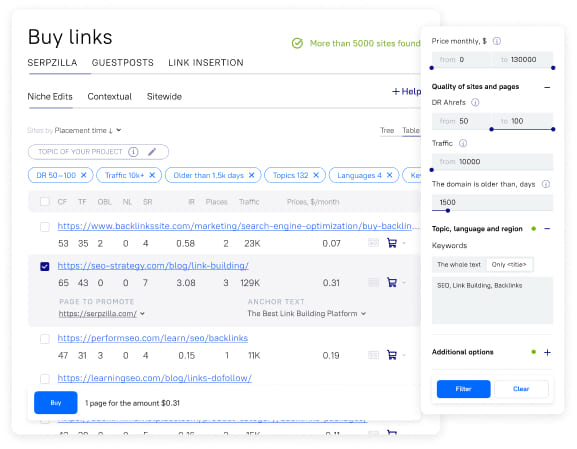
Conclusion
Successful link building for cryptocurrency websites necessitates a harmonious blend of top-notch, contextually fitting backlinks and inventive approaches customized for the distinctive characteristics of the crypto sector. Highlighting the paramount role of ethical methodologies, the article stresses the avoidance of black hat tactics and underscores the value of cultivating a robust and trustworthy online identity. The Serpzilla service proves instrumental in this pursuit by providing quality sites exclusively tailored for the crypto niche in link building, thereby augmenting the efficacy and scope of your link-building initiatives.




